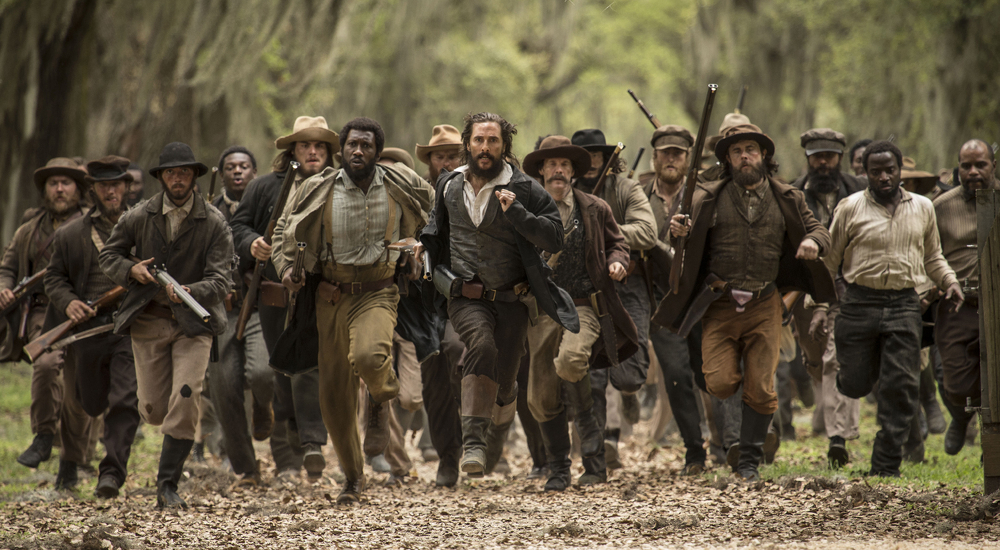Free State of Jones is another powerful historical drama starring Matthew McConaughey. Filled with righteous fury, he continues his hot streak as Newton Knight, a disillusioned Confederate army medic.
Newt (as he’s called by just about everyone) leads a band of deserters, war widows and runaway slaves as they hide out in the Mississippi swamp. Together, they forge a community and Newt becomes an Antebellum Robin Hood, stealing back the ill-gotten gains of the tax collectors and rapists who steal from the few Southerners lucky enough to still have a home.
In the movies at least, the Civil War has almost become glamorized, making out soldiers on both sides to be gentlemen fighting for honor and tradition. Free State of Jones puts to bed this nonsense. War – as always – is nasty, brutal business. This movie doesn’t shy away from the brutality or the heinous violence inflicted on African Americans before, during and after the war.
While its passion reminded me of Django Unchained – though it’s hardly a comedy – the film I was most reminded of while watching Free State of Jones was Steven Spielberg’s Munich. Both films are about the cost of vengeance when both sides think they’re right, repaying violence with violence. It’s not quite as bleak as that film, but it’s still a gut-punch when the actions of Newt and his army don’t amount to all they hoped. Even after the slaves are emancipated and the war ends, their struggles don’t.
Where Free State of Jones stumbles is in an epilogue that it curiously distributes throughout the film, in which Newt’s grandson Davis is on trial for marrying a white woman – something that’s illegal under Mississippi state law since his grandmother was black. It’s true and infuriating, but the courtroom scenes are handled in clunky fashion, and the prosecutor is such a caricature of a Southern good ol’ boy, I’m surprised he didn’t spend every scene stretching his suspenders.
Otherwise, this is a tremendously entertaining, blood-boiling true story. Like its protagonist, it’s stubborn in its refusal to be pigeonholed or easily labeled.

